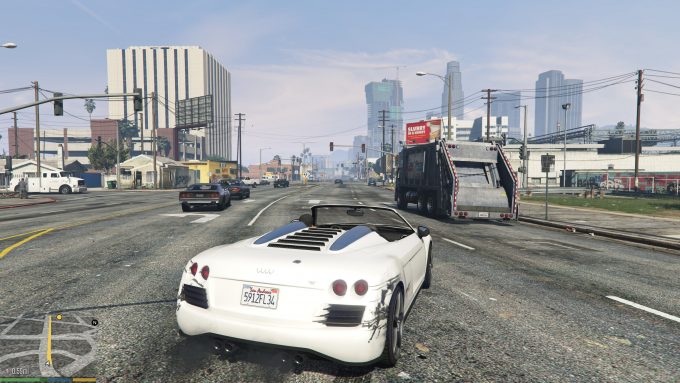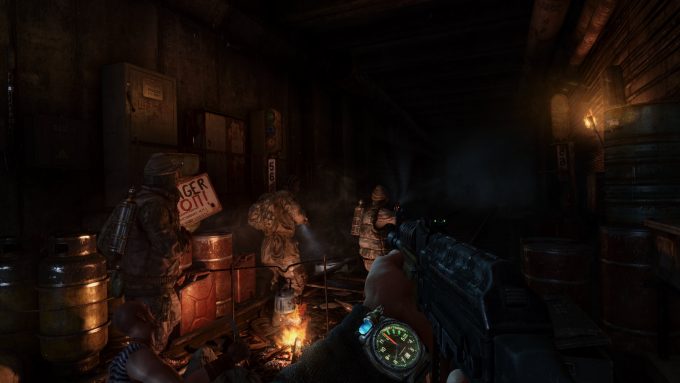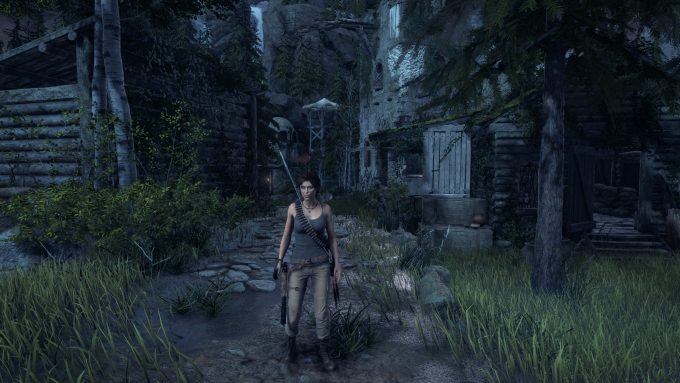- Qualcomm Launches Snapdragon 4 Gen 2 Mobile Platform
- AMD Launches Ryzen PRO 7000 Series Mobile & Desktop Platform
- Intel Launches Sleek Single-Slot Arc Pro A60 Workstation Graphics Card
- NVIDIA Announces Latest Ada Lovelace Additions: GeForce RTX 4060 Ti & RTX 4060
- Maxon Redshift With AMD Radeon GPU Rendering Support Now Available
AMD Radeon RX 470 4GB Graphics Card Review

AMD’s second Polaris graphics card has arrived, and it comes to us in the form of the Radeon RX 470. As its name implies, AMD’s latest model slots in just under the RX 480 – really close. The SRP difference between these two cards is a mere $20, so let’s dive in and see what you can expect from either one.
Page 3 – Tests: Grand Theft Auto V, Metro Last Light & Rise Of The Tomb Raider
Grand Theft Auto V
Does a game like this even need an introduction? Any Grand Theft Auto game on the PC is a ‘console port’, proven by the fact that it always comes to the PC long after the consoles, but Rockstar has at least done PC gamers a favor here by offering them an almost overwhelming number of graphical options to fine-tune, helping to make it suitable for benchmarking, especially at high resolutions.
Testing: The mission Repossession is chosen for testing here, with the benchmark starting as soon as our character makes his way to an unsuspecting car. The benchmark ends after a not-so-leisurely drive to a parking garage, right before a cutscene kicks in.
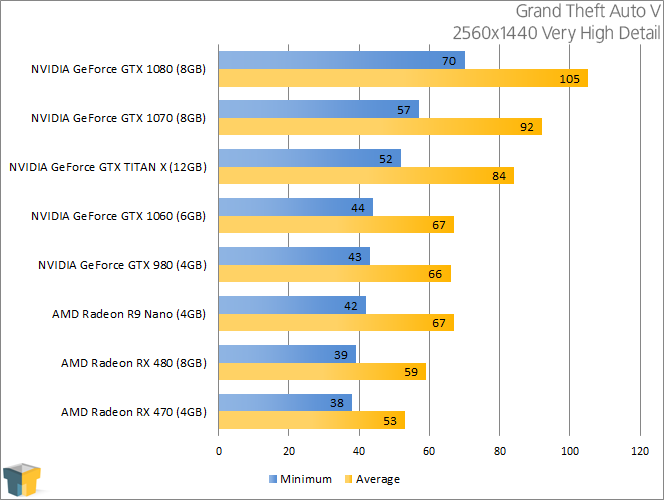
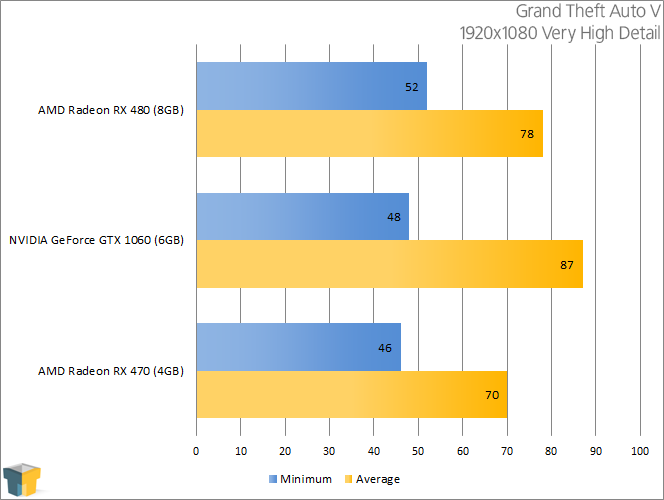
The 1080p graph above might seem a bit odd as the best-performing card is in the center, but that’s due to the fact that the RX 480 somehow managed to deliver a better minimum result, and I weigh that a bit more heavily than the overall (no one wants a game that dips to 30 FPS or under). That said, in both of the 1080p and 1440p tests, the RX 470 delivered some rather impressive performance – 53 FPS at 1440p full detail is excellent.
Metro Last Light Redux
Like a couple of other games in our stable, Metro Last Light might seem like an odd choice give its age. After all, the original version of the game came out in 2013, and its Redux version came out in late 2014. None of that matters, though, as the game is about as hardcore as it can get when it comes to GPU punishment.
Testing: The game’s built-in timedemo is used for testing here, which lasts 2m 40s. While the game can spit out its own results file, it’s horribly inaccurate, so Fraps is still used here.
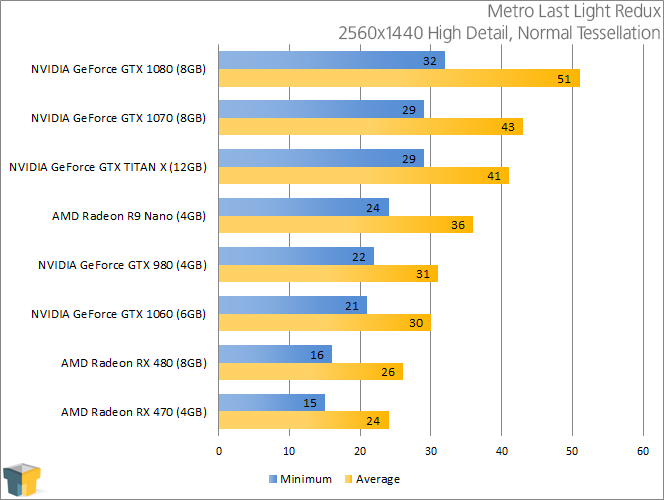
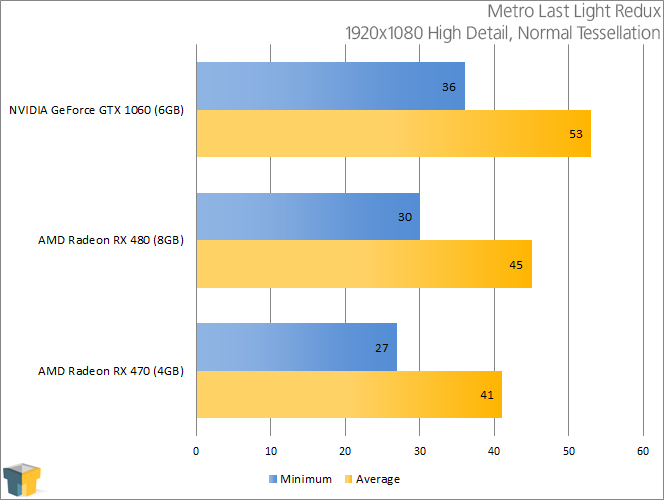
Yet again, the performance between both the RX 480 and RX 470 is minimal, although it’s not hard to see that these are not ideal framerates to begin with. For truly playable framerates in this title, you’ll be spending a few minutes tweaking the available options.
Rise Of The Tomb Raider
Lara Croft has sure come a long way. The latest Tomb Raider iteration becomes one of the first titles on the market to support DirectX 12, but even without it, the game looks phenomenal at high detail settings (as the below screenshot can attest).
Testing: Geothermal Valley is the location chosen for testing with this title, as it features a lot shadows and a ton of foliage. From the start of our saved game, we merely walk down a fixed path for just over a minute and stop the benchmark once we reach a broken down bridge (the shot below is from the benchmarked area).
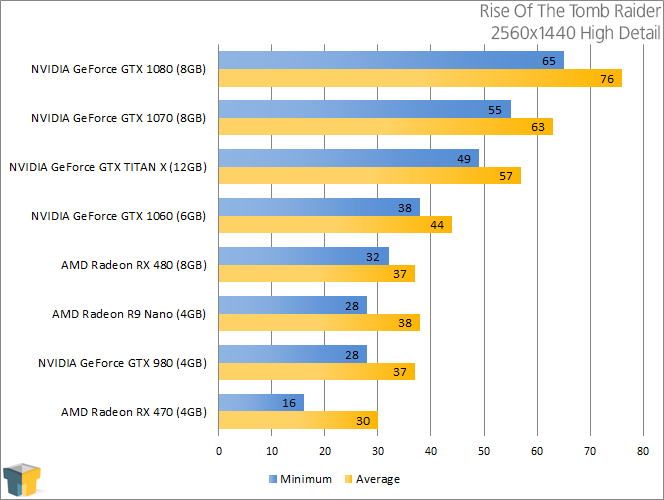
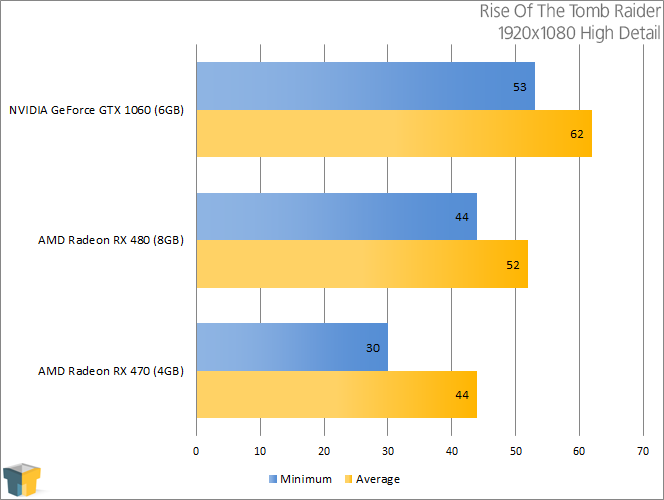
Of all the games tested in this article, Rise of the Tomb Raider is one of the most brutal on GPU performance. It’s also brutal on GPU framebuffers, as with the right blend of settings, 4GB can be exceeded. That might be why the RX 480 gained a bigger delta at 1440p here than it has in previous titles, and even at 1080p, for that matter.
Support our efforts! With ad revenue at an all-time low for written websites, we're relying more than ever on reader support to help us continue putting so much effort into this type of content. You can support us by becoming a Patron, or by using our Amazon shopping affiliate links listed through our articles. Thanks for your support!




